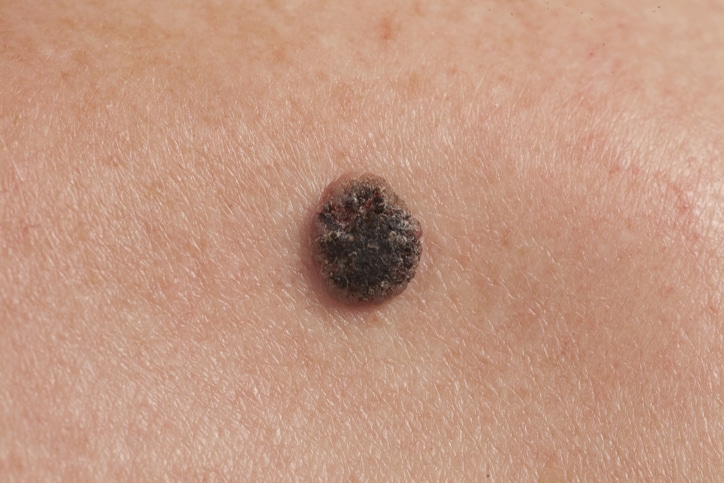
Because conditions such as skin cancer develop on the skin where they are highly visible, it is one of the few cancers that can be easily detected early enough for successful treatment and recovery. Skin cancer can impact patients at any age and certain patients are at a higher risk of skin cancer—especially those who have spent countless summer days out in the sun with unprotected skin.
How to detect skin cancer
There are many early warning signs for patients who are developing skin cancer, and if patients pay close attention to changes to their skin, they may spot cancer in the earliest of stages. This is why it is important for patients to monitor changes in moles on the body, as this can be an easy indicator of a serious problem. Additionally, patients should book annual skin cancer screenings with a dermatology to get a head-to-toe evaluation. Patients should look for new or changing skin growth, wounds that don’t heal after scabbing, and the development of any skin tags that may indicate a problem.
Is my mole cancerous?
One of the easiest ways to spot skin cancers such as melanoma is with changing moles. Moles may be present on the body and are common. However, changing in moles or the development of new ones may be of great concern. The doctors at Harris Dermatology encourage patients who notice changes to their moles to request a biopsy with their dermatologist. A biopsy is done to take a sample of the tissue and have it evaluated at a laboratory for skin cancer cells. Changes to the mole that patients should take note of include changes to color, shape, size, and border. Patients should also tell their doctor if they are experiencing itching, tenderness, pain, or bleeding from a mole.
Contact Harris Dermatology for an evaluation today
If you reside in the communities of Fort Myers or Naples, Florida and are interested in seeking assistance with the evaluation of a mole, now is the time to connect with our doctors. Call one of our two convenient locations to connect with Drs. Brian Harris, H. Ross Harris, or Keith Harris for assistance.

